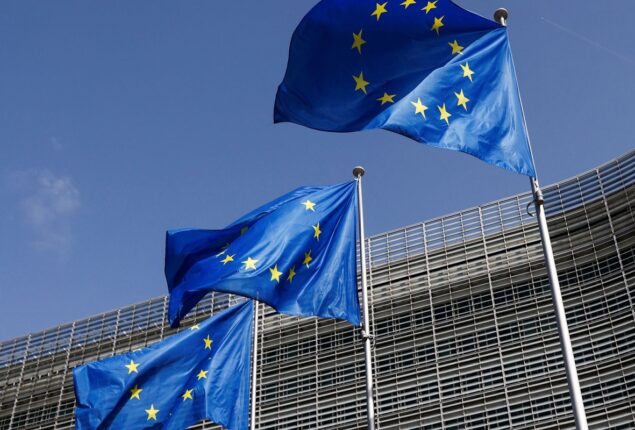Europe slaps drone sanctions against Iran
For providing Russia with lethal "kamikaze" drones to attack Ukraine. Iran is...

EU summit lasts 11 hours but fails to reach a gas price cap agreement
Despite hours of debate at a conference in Brussels, European Union leaders were unable to come to an agreement on a strategy to help shield their population from rising energy prices.
At around two in the morning in Brussels (00:00 GMT), the group’s leaders left their second summit in as many weeks with a “roadmap” for deciding on a series of measures to reduce energy costs, which have skyrocketed as a result of Russia’s invasion of Ukraine.
Although the summit document was publicly announced, the absence of an agreement on controlling gas prices suggested that discussions would continue to be challenging.
Ursula von der Leyen, president of the European Commission, said to reporters early on Friday, “We do now have a very clear and solid roadmap to keep on working on the problem of energy costs.”
The EU energy ministers are scheduled to meet in Luxembourg on Tuesday to continue their deliberations, but no timetable was provided for when a decision on price controls will be taken.
In the released language, it is requested that the European Commission and EU member states come up with strategies to protect consumers from high costs “while safeguarding Europe’s global competitiveness… and the integrity of the Single Market.”
The meeting’s host, Charles Michel, the president of the EU Council, declared, “There is a strong and unanimous shared desire to act together, as Europeans, to achieve three goals: lowering prices, maintaining the security of supply, and continuing to strive to reduce demand.”
The EU has been arguing over which cooperative measures to adopt in deliberations that have been made more difficult by the different energy mixes in each country for months.
As public outrage over rising living costs in nations like France and Belgium grows, at least 15 EU members are calling for a restriction on gas prices.
Germany, the largest economy in the EU, has rejected the call, claiming that a cap runs the risk of sealing out Europe from the gas market and lowering incentives for energy conservation.
The conclusion of the meeting, according to Chancellor Olaf Scholz, was a “positive indication of solidarity,” but other leaders expressed annoyance.
Prior to the war, the EU obtained 40% of its gas from Russia, but in July it decided to reduce its reliance on Russian gas by 15%. Moscow cut back on supplies due to the action, which raised prices even further. In late August, the cost of gas in Europe surpassed 343 euros ($335) per megawatt-hour, setting a new record.
An EU official involved with the meeting told Reuters that Mario Draghi, the outgoing prime minister of Italy, told his peers: “We are urged to show solidarity in sharing energy, but there is no solidarity on our calls for regulating prices.”
Similar comments were expressed by Belgium’s Prime Minister Alexander de Croo, whose country sends gas to Germany’s neighbor.
He reportedly addressed the crowd, “Solidarity should not just be on supply—it should also be on prices.”
French President Emmanuel Macron expressed pleased with the outcome after claiming before the summit that Germany was isolating itself.
The commission will have “the next two or three weeks” to develop these implementation tools.
He claimed it “very clearly signaled to the markets our resolve and our togetherness.”
Catch all the World News, Breaking News Event and Latest News Updates on The BOL News
Download The BOL News App to get the Daily News Update & Follow us on Google News.